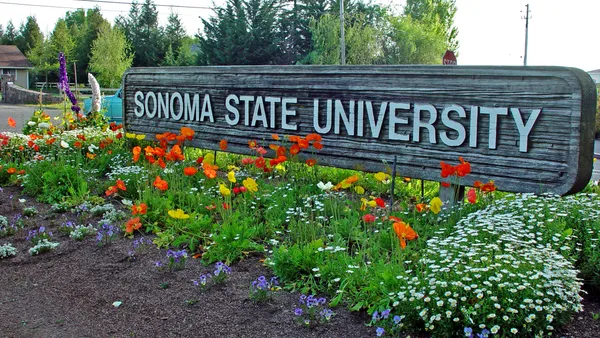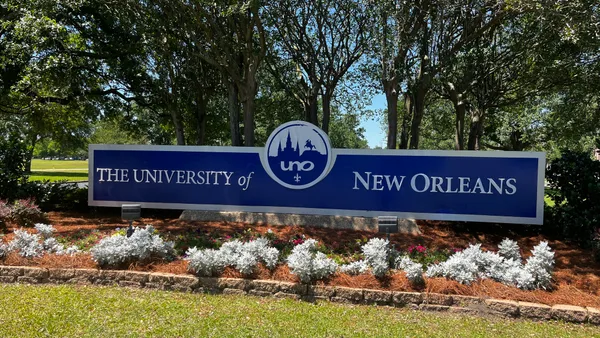Dive Brief:
- Graduate enrollment grew this fall while most of the rest of the higher education sector lagged, so it's perhaps unsurprising that Moody's Investors Service projects those programs will continue to play a critical role in colleges' revenue growth and diversification.
- In a new report shared with Higher Ed Dive, the credit rating agency says colleges that have the resources and ability to adapt quickly to new demand will be the most likely to benefit from the heightened interest in graduate programs.
- Moody's also notes the continued potential for growth in online and short-term offerings, program types institutions have been embracing as a way to expand their reach.
Dive Insight:
Graduate enrollment partly grew because many of the programs were online before the pandemic, enrollment experts said last fall. Graduate programs have been central to many institutions' online expansion in recent years, and Moody's notes students are demanding more tailored offerings.
It offers law schools as an example. As demand for the traditional J.D. degree declined, schools added non-J.D. legal programs, many of which were online and designed to complement education in other fields. Non-J.D. programs more than doubled their share of law school enrollment in the last decade, the report notes.
Growth in data science programs is also illustrative. A recent survey from the Graduate Management Admission Council indicated an uptick in companies' interest in hiring business graduates with a master's in data analytics, which is more targeted than an MBA. U.S. colleges have responded by expanding or adding data science programs.
Colleges with the "resources, flexibility and know-how" to adapt quickly to shifting demand will have a better shot at growing graduate enrollment and revenue going forward, the Moody's report notes.
It also points to growth in certificate and licensure programs as an opportunity. Data from the Council of Graduate Schools backs this up. It found a 5.2% average annual increase in the number of graduate-level certificates awarded from 2008-09 to 2018-19. That's compared to increases of 1.5% and 3.8%, respectively, in master's and doctoral degrees. Gains in those two sectors were largely steady across the period studied, while certificate growth spiked 19.6% from 2017-18 to 2018-19. Most of that increase happened at public colleges.
Challenges remain in the form of competition from alternative credential providers and prospective students' reluctance to take on debt, the report notes. International students also could be deterred by perceptions of the U.S. as less welcoming or more volatile than other countries with attractive graduate school offerings.














